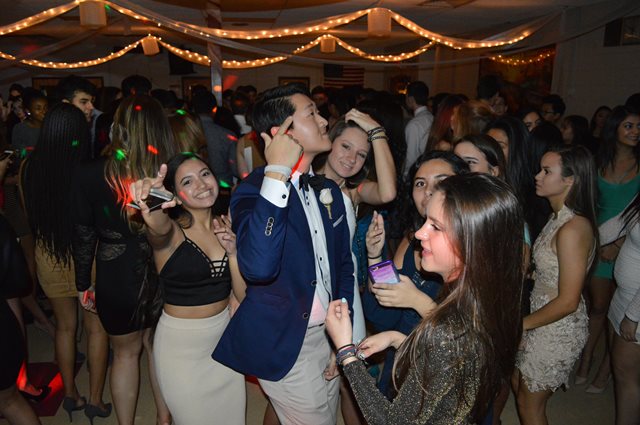Perfection: Fantasy or Reality?
Who really has the deciding vote when determining what is ugly and what is pretty? Is it a friend, teacher, parent, or a next-door neighbor? Society deems itself worthy to give their opinion on whether or not they find something to be pretty or ugly. The public uses the social media to broadcast their thoughts and ideas. The social media makes their decisions known to the public when determining what “perfection” truly looks like through advertisements, TV shows, movies, internet and magazines. These are only a few of the weapons they release on insecure girls and boys. By brainwashing and influencing insecure teenagers, society and the social media are able to make them want to act and appear a certain way in order to fit the image they portray as “perfect”.
Society is constantly degrading and belittling people who are different in appearance and character. It is a common part of human nature to constantly judge others. Majorities of teenagers are easily influenced by stereotypes, cultures and backgrounds, and peer pressure. Teenagers will usually believe and follow what other people believe and say. Since people put too much pressure on the importance of beauty, others try to enhance their looks. “Society judges people based on their looks, not their personality. They want to show people their perception of ugly and beautiful,” says Samantha Skraparis, a freshmen attending Leonia High School. Society wants people to change themselves into something that they simply cannot. If they have thick curly hair, society asks “why not straight and silky?” If they have prominent facial features, people say, “plastic surgery cures any flaw!” People pressure girls and boys into altering their physical appearance because they believe that the way they look is not perfect or beautiful. Instead of searching for every little flaw in a person’s appearance, society should look inside those bodies and accept them for who they truly are. Personality, traits, qualities, and individuality should account for more than physical beauty. However, because society puts more emphasize on attractiveness, this causes teenagers to feel insecure about their looks. This is the reason most boys and girls hide their originality and courage, and instead wear a mask of diffidence.
One of the main ways society affects teenagers is by using the social media. The social media mirrors society’s actions and thoughts and promulgates society’s ideas about the appearance of women and men. A plethora of social media tactics are used to persuade insecure teenagers that their looks are not up to society’s standards. Info.com claimed that a recent survey showed that about 77% of girls found themselves to be ugly when comparing themselves to girls on advertisements. Anne Shalamoff, another freshmen attending Leonia High School, states, “All actors and models in movies, magazines, and commercials are perfect. You cannot walk outside or turn on a computer without seeing a perfect person. Even the normal family on TV is completely gorgeous, which is unrealistic. They can brainwash us in every aspect.” These actors and models portray an ideal that is unrealistic and unreachable to most teenagers. A CNN article explained that social networking and media has become a big part our lives and is used to expose society to images of perfection. It stated that websites such as Facebook and Twitter promote unhealthy pressure to look beautiful, comparison of others, and ourselves and competition to look the best. Dr. Susie Orbach, a psychotherapist, declared that too much social media was harmful to a young girl’s self-esteem.
Society and social media put too much pressure on appearance. Many people often stare in the mirror wondering whether they are pretty, ugly, fat, or skinny. Statistics show that women look into the mirror on an average of eight times per day. Simple Skin surveys show that women supposedly dislike staring into the mirror. Simple Skin surveys claimed, “About 75 percent of the women who participated told Simple Skincare that they “hate” looking in the mirror, while 39 percent reported that it negatively impacted their self-confidence.” Why do so many people bother staring into a mirror eight times per day if they later regret it? This is because they feel a self-conscience urge to check their appearance multiple times in order to look pretty due to the influence of society and the social media. “As much as society emphasizes what beauty is, it does not compensate for the truth about people having different attractions,” declares Rama Tutari. “Some people can be attracted to someone who others find ugly.” If people were less committed to their looks and how others viewed them, they could put their energy into useful things including grades and their futures. Instead of worrying about outward appearances and insecurities, focus on inner beauty, personality, and individuality.
